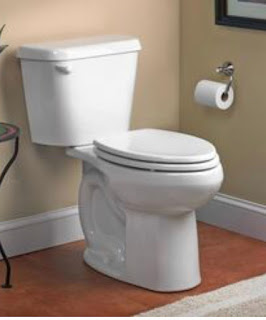PERC TESTS
If you’re building in the country, something you might not know
is you have install a wastewater system – or a place for all your wastewater to
go. In town, there is plumbing and city
sewers to take care of all that, but if you build in the country you have to
provide your own sewer system! The most
popular types of wastewater systems are septic systems.
Septic systems work in conjunction with Mother Nature. The largest part of a septic system is the
drain field (also known as a lateral field or leach field). The drain field is the portion of your septic
system that uses the soil to absorb ALL of the water that comes out of your
house. Every time you flush, do a load
of laundry, take a shower, run the dishwasher, wash your hands, etc., the water
drains out of the house and eventually ends up in the soil right outside your
house.
But there’s actually a little more involved with where your
septic system is placed and what kind of soil is best at absorbing water….
If the per tests “passes,” a conventional septic system can
be installed. If it “fails,” you have to
look at other options (i.e. lagoon, polishing pond, or engineered system). The
bigger issue here is this: where ever
that perc test was taken, if it passes, THAT AREA AND THAT AREA ONLY is where
the drain field portion of your septic system needs to be installed.
What exactly do I mean by that?
Let’s say you’re purchasing a 3 acre plot – which is pretty
common in our area. If you have a
pasting perc test on that lot, it does not mean that ALL THE SOIL on that lot
is good. It only means the soil where
the test was taken is good. The crazy
thing about soils is that they change fast.
In one 3 acre plot, you can have up to 4 different types of soil flowing
through it. So, when you get a passing
perc rate, bear in mind, that it’s only where that test was taken and NO WHERE
ELSE. We have seen people build right on
top of the only good soil on their lot which is terribly unfortunate. When we conduct a perc test, we not only mark
our holes with flags, but we give you a GIS map with the results so you can see
where the test was taken.
So, though this may be quite possibly the most boring work a
person can think of….conducting a perc test…it is vital and important when
installing a conventional septic system.
Hope
this is helpful! Until next week!




Comments
Post a Comment